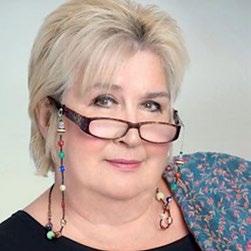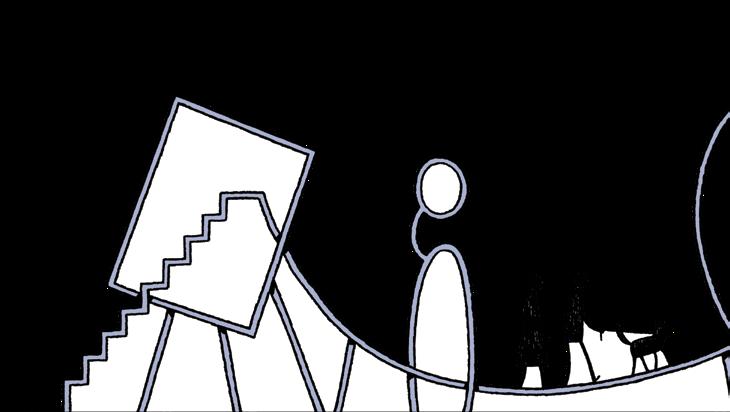Travel On the road – at 90 As she enters her tenth decade, the travel writer Dervla Murphy tells William Cook about the joys of journeys in old age
‘B
y 2021, I’m likely to be either dead or dotty,’ declared Dervla Murphy ten years ago, in her heartfelt book about Gaza, A Month by the Sea. After talking to her on the telephone from London (unable to visit her in Ireland due to pesky COVID), I’m pleased to report that she was wrong. The Queen of Travel Writers is still very much alive, and still as sharp as ever. She turns 90 on 28th November, but her writing is curiously ageless. In her early books, written in her thirties, she seemed wise beyond her years. Her later books (like A Month by the Sea, which she wrote when she was 80) exude the energy and vitality of a woman half her age. Naturally, old age can be restrictive for a travel writer but, as Dervla has discovered, there are plus points too, especially in developing countries. ‘From the age of 60 onwards, when you’ve got grey hair and some of your teeth are falling out, it makes it much easier in many circumstances to be accepted.’ She was born in Lismore, County Waterford, in 1931 – she still lives there today. ‘I was fortunate enough to be born in one of the most beautiful corners of Ireland, and why would one want to live anywhere else?’
80 The Oldie September 2021
Her parents were Dubliners, who moved there when her father got a job as Lismore’s librarian. Dervla inherited his love of literature. An avid reader from an early age, she loved Biggles and Just William. ‘I never felt sorry for myself as an only child until I watched my three granddaughters growing up, and then I realised how much I’d missed by not having siblings.’ Her mother was crippled by rheumatoid arthritis. When Dervla was 14, she left school to care for her. For this bookish teenager, that sacrifice could have become a tragedy, but she finished her education in her father’s library, and spent her free time cycling round Ireland. For an aspiring travel writer, it was an ideal apprenticeship. ‘For any child, I think it’s an advantage being brought up in a really beautiful rural area, surrounded by natural beauty – that’s such a good start.’ Confined to Ireland throughout her
‘When you’ve got grey hair and your teeth are falling out, it’s easier to be accepted’
childhood, she learnt to relish every journey, however local, and to appreciate every detail. Getting to know her homeland developed her writer’s eye. Her parents died fairly young, in quick succession, soon after Dervla turned 30. Ever since she was a child, she’d dreamt of cycling to India, and now she was free to go. ‘The speed at which you are travelling is natural. It’s about the same speed as in the old days, if you were riding a good horse.’ Her diary of this epic bike ride became her first book, Full Tilt, published in 1965. Though she was attacked by wolves and bitten by a scorpion and survived all sorts of other mishaps, what makes the book so appealing is its intimate and friendly tone. In India, Dervla worked in a refugee camp for displaced Tibetan children (recounted in her second book, Tibetan Foothold) and then set off for Nepal, which resulted in another book, The Waiting Land. Her account of her most intrepid journey, In Ethiopia with a Mule, was published in 1968. ‘One gets something very valuable from slow travel – my major journeys have been on foot.’ It was her fourth book in as many years. Then her travels were interrupted by the birth of her daughter, Rachel. Dervla






































